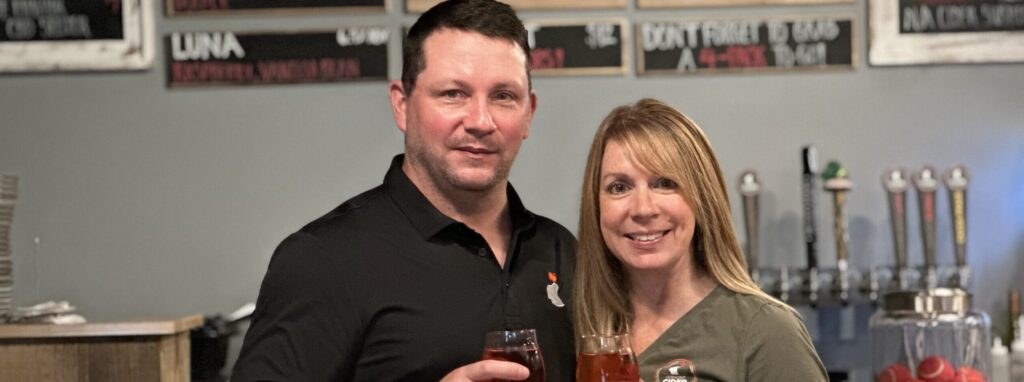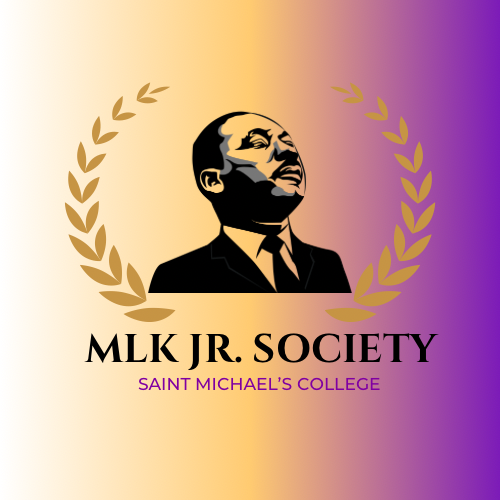Zoom, spices offer taste of India after trip canceled
Professor Allison Cleary gives students a sensory sampler of Kolkata alongside explorations of politics, religion, culture
When Allison Cleary of the Saint Michael’s media studies, journalism and digital arts faculty learned that the COVID-19 pandemic would cancel her planned academic study trip to India this spring with seven Saint Michael’s students, she decided to bring India to them, if only virtually, once the for-credit class part of the experience had to move online.

Allison Cleary
Of 10 class members, all women, seven were to make the trip while the other three took the course to better understand Kolkata (Calcutta) and India, even minus the visit. With the change of plans, however, in recent weeks the entire class benefited instead from a fascinating Zoom-meeting with an erudite scholar and native of India who is the aunt of Saint Michael’s Dean of Faculty Tara Natarajan, herself a native of India; they also did a cooking project after Cleary sent everyone packets of Indian spices with recipes to prepare and share with their families at home; and everyone did a project imagining themselves aligning, as Hindus, with particular “gods” in that religion based on personal needs or priorities of their own lives. While no replacement for a real visit, it let students glimpse and better imagine what they might have experienced, the professor said.
Cleary, a longtime leader of MOVE in Edmundite Campus Ministry (the acronym stands for Mobilization of Volunteer Efforts) is a seasoned veteran of such travels and studies. “This would have been the fifth trip I made to Kolkata, the previous four through MOVE, but this one was an academic study trip, since MOVE canceled their international trips this year,” she said. “I’ve also taken students to Guatemala, and to the Dominican Republic — the latter eight times in my MOVE role, since I was a Peace Corps Volunteer in the DR back in the day.”
“When all this happened with the pandemic before we left for spring break, and we knew the trip had to be canceled, students were incredibly disappointed… so I decided to try to bring a little of Kolkata to them,” Cleary said. (story continues below photo).

Spices for a packet to be sent to a student of Allison Cleary, labeled and arranged artistically. (Photo by Allison Cleary)
Normally, Cleary said, she would host a dinner at her house at semester’s end to try Kolkata recipes. “I miss my students so much, and it’s always such a great celebration where we get to know each other at a deeper level. So when it became clear we couldn’t do that this year, I packed up a dozen spices for each, wrapping everything up in little wax paper, to send to them. The idea was that in India, family is everything and food brings family together and these spices bring senses alive with colors and amazing aromas –so if I can’t bring the actual streets of Kolkata with all the sensory hyperbole to students, then cooking a meal would transport them a little bit and they could share with whoever they are living with.”
The class surrounding the India experience went over a real spectrum of things, Cleary said — “everything from present politics under Prime Minister Modi, to Mother Teresa’s controversial presence there — because not everybody thought she was great, and many thought her presence brought a perception of desperation in city also known for arts and culture — although many have supported her too, of course.”
Initially Cleary planned to have her students learn some basic Indian language before the trip, but she dropped that. However, Professor Shefali Misra of political science came in, before classes moved to remote learning due to the pandemic, explaining about the economics of India that sees a prosperity boom alongside the reality of 70,000-plus souls living on the streets of Kolkata.
A centerpiece of those efforts was the recent Zoom conversation with education scholar Kamakshi Balasubramanian, Dean Natarajan’s aunt in India. “She is an erudite lady — former teacher and an international scholar involved with many world organizations –really thoughtful, and her focus is around various populations and people being marginalized — the “invisible poor” in society, about empowering women and more,” Cleary said. To accommodate the vast time-zone disparity for that Zoom interview, about six students joined Cleary for an early-morning interview on the U.S. side of things.
“For the most part it worked we had some warping and little glitches, but it wonderful to get a glimpse from somebody in India of what the pandemic meant for Indians now — she could offer a larger perspective than just the bleak picture from the news,” Cleary said. “For example, she told about the government delivering oil, grains and lentils to people on a weekly basis. Students afterward felt a little less weighed down to have heard somebody so hopeful about the future of India.”
One assignment focused on the predominant Hindu religion in India. Each Hindu family has an altar to “their god,” as Cleary described it — chosen for specific personal reasons, so Cleary asked her students to imagine that, if they were Indians and Hindus, what god would they be choosing or hoping to have help from in these times given their own personal priorities. “It was really interesting – one shared about a focus on overcoming obstacles since she never had felt so many obstacles, another imagined a sun god representing brightness and possibilities – another who lives in Baltimore imagined a Hindu god with power to elect a mayor in her home town who was focused more on equality.”
The class “is an exceptionally thoughtful group of students from first-year through seniors and a mix of majors – biology, environmental studies, political science and others,” she said. A few students reported that things got stressed during their cooking assignment – in one case, burning food while a dog was barking persistently in the background –“ but it helped that student understand chaos as she might encounter in Kolkata,” Cleary said. “We a wonderful final class with students on Wednesday, April 29, with lots of discussion and laughter about the stress of cooking!”






